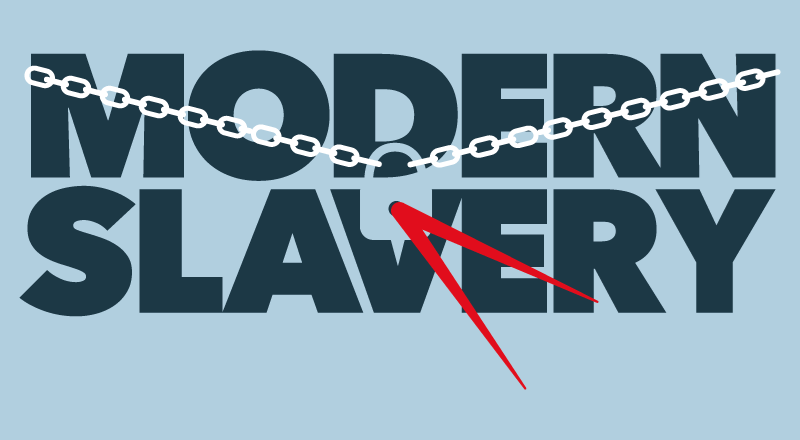UK fraud has got to the point where, according to a recent Treasury select committee report, instead of decreasing, economic crime has risen in the past few years.
The Treasury select committee report said: “Since 2019, it appears that economic crime has not reduced but has instead continued on an upward trend. The Minister for Security and Borders at the Home Office told us that he was ‘not happy’ with the progress that the Government had made in tackling economic crime. Nor are we.”
The latest data from the Office for National Statistics (ONS) underlines the worrying trend. The latest Crime Survey for England and Wales (CSEW) shows that for the year ending December 2021, compared with the pre-coronavirus year ending December 2019, there has been an 18% increase in total crime, driven by a 54% rise in fraud and computer misuse offences.
What’s changed?
The problem with fraud is, of course, not unique to Britain. But it has come to the fore since the pandemic, due to the amount of time and money people were spending online in the various lockdowns, largely facilitated by advances in technology. This has opened up a whole Pandora’s box of new methods for criminals to target people.
The cross-border fraudulent activity is another huge challenge for law enforcement in Britain, especially given that most mass fraud campaigns originate outside of Britain. Even if law enforcement can untangle the digital web to pin down organised crime gangs, it is unlikely that they will be able to bring them to justice in the UK, especially if they are based in adversarial, authoritative regimes such as Russia.
Hitesh Patel, Partner at advisory firm StoneTurn, says: “The complexity now involved and ease of entry to commit fraud is that much easier because a lot of us are spending our lives in the digital world. This is just absolute heaven for organised criminals who are able to target individuals who either have weak systems or have a lack of understanding of the type of threat they might be faced with.”
Insufficient resources and weak enforcement, as well as embedded structural issues, are further issues for the UK.
Mike Miller, Economic Crime Manager, ICAEW, says: “The potential financial benefit to organised criminal groups is substantial, and the risk is really relatively low. The government doesn’t put a proportionate amount of resource into what would be needed to effectively counter it.”
KPMG’s biannual Fraud Barometer found 298 alleged fraud cases reached court during 2021 (up from 180 in 2020). Yet the opposite trend was seen in terms of fraud value: the total value of fraud reaching UK courts in 2021 fell significantly from £724m in 2020 to £444.7m in 2021.
While cases in UK courts provide an indicator of fraud activity, KPMG says these cases are small in the context of fraud crime reported to Action Fraud. Between 2020 and 2021, there were 875,622 reports made to Action Fraud with a reported loss value of £2.35bn, “pointing out the stark reality that relatively few cases are brought to court”.
The history of prosecuting fraud in Britain is not a successful one, partly because the ecosystem of prosecuting economic crime is not well connected.
David Gomez, Senior Lead, Ethics, ICAEW, says: “Fraud, both civil and criminal, is a complex legal area and such allegations are often difficult to prove. In the criminal sphere, there are overlapping investigating and prosecuting bodies, which have different levels of expertise, resourcing and competing priorities. It’s crucial that the UK addresses the issue of resourcing for law enforcement.”
Research by the think tank the Police Foundation found in 2018 that the police response to victims of fraud was “inadequate”. The research concluded that “fraud is not prioritised by the police”, with just 0.8% of the police working in specialist economic crime teams, “meaning there is a lack of dedicated resource for dealing with fraud”.
Patel says: “There are a number of structural issues to confront in the UK in the sense that introducing laws to tackle fraud such as the Bribery Act and the Economic Crime Act or making accountants a lot more responsible for detecting fraud in the audit all of that is great, but on its own will not result in a great outcome because of weaknesses in enforcement systems, oversight and governance.”
Too many cooks
One of the main obstacles to tackling fraud in the UK is the disparate number of bodies tasked with curbing economic crime. At the last count, there were around 20 different bodies including separate police forces responsible for tackling fraud. Fraud offences reported to the police are recorded and collected by the National Fraud Intelligence Bureau from Action Fraud and two industry bodies – Cifas, which reports instances of fraud where its member organisations have been victims, and UK Finance – just a couple of the bodies tasked with tackling fraud.
The Treasury Select Committee said in its report that economic crime did not seem “to be a priority for law enforcement”, adding that the number of agencies responsible for fighting economic crime and fraud is “bewildering”. The committee said the government should consider whether a “single law enforcement agency with clear responsibilities and objectives to fight economic crime” would be better.
Evolving scams
Phishing has become one of the main methods used to commit fraud. Around half (53%) of CSEW respondents reported receiving an email, text or social media message that may have been phishing in the last month.
Increases in advance fee fraud and consumer and retail fraud indicate fraudsters are taking advantage of behavioural changes due to the pandemic, such as increased online shopping, according to the official crime survey. Advance fee fraud offences included scams where victims transferred funds to fraudsters for postal deliveries.
Computer misuse offences doubled in the year ending December 2021 (to 1.8m) compared with the year ending December 2019, the crime survey shows.
But the biggest increase was seen in ‘unauthorised access to personal information (including hacking)’ offences. This included victims’ details being compromised via large-scale data breaches, and victims’ email or social media accounts being compromised, the crime survey shows.
Gomez says: “Tackling fraud successfully requires investment in law enforcement and upscaling capacity. We hope this will be addressed in the government’s new fraud strategy.”
Britain’s culture of openness, where more and more people are sharing personal details online, may also contribute to our exposure as a society to all forms of fraud. As individuals we also need to take responsibility, and experts say the government should launch a widespread anti-fraud awareness campaign just as the government did in the past for things like road safety and drugs.
Annette Barker, Head of Forensic, KPMG, says: “Part of the challenge is that to really tackle fraud, there are things that can be done from a regulatory and policy perspective, but the overarching challenge is that it’s not just the people who are detecting and prosecuting fraud that have a role to play. It needs to be from grassroots and needs to be a lot more done around prevention as well. Maintaining awareness of the latest threats is really important in fraud prevention because fraudsters are always adapting the way they target the victims. If people or firms don’t report fraud or educate their staff, then there’s an increased risk of people falling victim to it too.”
Until the government commits enough resources and investment to fight fraud, it is unlikely that Britain will see a fall in fraudulent activity any time soon, because the organised crime gangs are more agile and flexible. It is expensive to combat fraud in today’s complex and fast-changing digital world, but it is more costly not to invest in this 21st-century fight.
View ICAEW’s Academy Risk & Fraud courses. Our risk management courses address topics relevant to all levels of the organisation, including the Board.
Recent articles
Company reform and economic crime
The Economic Crime Act 2022 became law in March and part two of the bill is incoming. From risks to required changes, we explore key considerations for accountants on the issue.




